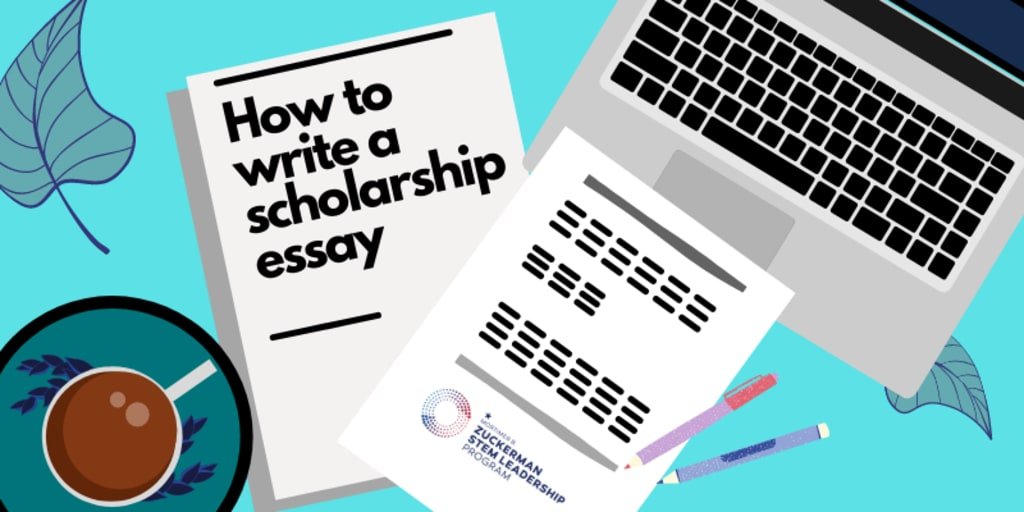Studying overseas can be expensive for students from other countries. However, if you are ineligible for other forms of aid, scholarships are one of the finest options for financing your education. But for a lot of students, the most difficult part of the process is crafting a strong scholarship essay because you have so little time and space to persuade readers that you are worthy of their money! Here are five writing suggestions for a successful scholarship essay.
1. Seek guidance from your instructors.
Asking for assistance with your scholarship essay is nothing to be ashamed of; teachers are there to help you succeed. They can provide insightful advice on what makes a fantastic essay because they will be aware of the particular type of essay that is needed and have witnessed numerous others struggle to write essays of a similar nature. Make sure you let the teachers know that you’re seeking for a scholarship and would like their input on an essay; they will probably be more than delighted to help. (Of course, don’t do it if you believe it could in any way affect your grade or take attention away from their primary responsibility as a teacher.
Read also: 5 Surprising Jobs in Physiotherapy You Might Not Know About
2. Start by outlining your essay.
Never write without a strategy. adhere to advice on writing an effective scholarship essay. For any essay to be successful, it is essential to have at least an outline, regardless of whether you plan your entire essay or just write some bullet points. This will assist you in determining what to say and how to express it. Your thesis statement can even be informed by a well-written outline. After that, develop that idea further by coming up with yet another, and so on, until you have established the framework for the whole essay. After creating your outline, go over it again before writing your rough draft to see if there are any more things you might include to make your paper stronger.
3. Be sincere and personable.
When writing your essay, you should be truthful about your accomplishments and how education will enable you to reach your objectives. It’s not necessary to have a graduate degree from an Ivy League school; in fact, the majority of recipients of engineering excellence scholarships hold degrees from local public institutions. The important thing is to show how education has changed your life and how it can continue to do so for years to come. Your application ought to include proof of your current self and your future goals. Give us a glimpse of who you really are!
4) Adhere to the instructions exactly
1. Where do you want to go and where are you right now?
2. For what kind of degree program (number of years) and what level of coursework (grade point average), are you applying?
3. How have your surroundings or circumstances affected your desire to further your education?
4. In what ways have your hobbies and pursuits aided in your job preparation as an engineer?
5. In terms of your interests and strengths relative to technical aptitude, what is it about an engineering job that appeals to you?
6. Explain how you plan to contribute positively to the discipline of your choice.
7. Why should we allow you to our college or university when we’ve previously accepted a lot of deserving applicants with SAT scores that were probably close to perfect?
With your skills and abilities, how will you make a unique contribution to our campus community?
8. As a last question, is there anything more you would like us to know about your reasons for choosing our institution or university over another that is accepting applications for admission?
Read also: The 5 Communication Skills You Need To Be A Better Leader
5. Give real-world examples from your experience. Share personal experiences that are relevant to the field you have selected in your essay. If you’re looking for an engineering scholarship, for instance, describe how you overcame mechanical difficulties in your community or on college. Tell tales about your volunteer work at your neighborhood newspaper or how you had an idea for a book but were unable to find the time to write it if you’re applying for a writing scholarship. It’s sufficient to be true and truthful, without having to win awards or be published.
Read also: 5 Ways to Mentor Your Employees
How is an autobiography written? How is a biography written? What information should I put in my bio and what should I leave out? What level of information is excessive? What information must I divulge, and what information should I keep private? When considering whether or not to write their own biography, these are the kinds of questions that a lot of people have. Everything you’ve ever wanted to know about writing autobiographies is right here!

